Gordon Parks
出生 : 1912-11-30, Fort Scott, Kansas, United States
死亡 : 2006-03-07
略歴
From Wikipedia, the free encyclopedia.
Gordon Roger Alexander Buchanan Parks (November 30, 1912 – March 7, 2006) was a groundbreaking American photographer, musician, poet, novelist, journalist, activist and film director. He is best remembered for his photo essays for Life magazine and as the director of the 1971 film Shaft.
Description above from the Wikipedia article Gordon Parks, licensed under CC-BY-SA, full list of contributors on Wikipedia

Himself
Ossie Davis, Terry McMillan, Horace Julian Bond, Isaac Hayes, Dionne Warwick and many others share their inspiring stories of success in the first installment of this series about African-American history makers, including civil rights leaders, actors and authors. A good education, dedication to work, dogged determination and the courage to take risks figure prominently in these remarkable success stories told by notable African Americans.

Self
An interview/overview on the influential careers of Gordon Parks, Ossie Davis, and Melvin Van Peebles.
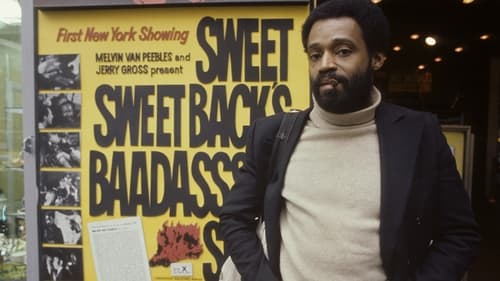
Melvin Van Peebles was one of the first black directors to challenge the white establishment in his films, which include "Watermelon Man" and "Sweet Sweetback's Baadasssss Song." In this documentary, the life of Van Peebles is discussed, including his work not only in film, but also as a novelist, actor, musician, stock trader and even Air Force pilot. Interview subjects include Gil Scott-Heron, Spike lee and Melvin's son and fellow filmmaker, Mario Van Peebles.
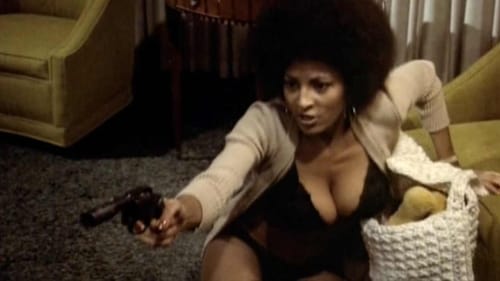
Self
With archive film clips and interviews, this brief look at a frequently overlooked historical period of filmmaking acts as an introduction rather than a complete record. It features interviews with some of the genre's biggest stars, like Fred Williamson, Pam Grier, and Richard Roundtree. Director Melvin Van Peebles discusses the historical importance of his landmark film Sweet Sweetback's Baadasssss Song. For a contemporary perspective, the excitable Quentin Tarantino offers his spirited commentary and author/critic bell hooks provides some scholarly social analysis.

Himself
An intimate look at the life and career of Gordon Parks a true Renaissance man who has excelled as a photographer, novelist, journalist, poet, musician and filmmaker.
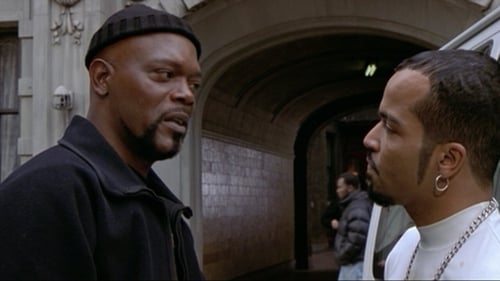
Lenox Lounge Patron
1971年の傑作黒人映画『黒いジャガー』のリメイク。サミュエル・L.ジャクソン演じる刑事ジョン・シャフトが、凶悪犯に立ち向かう痛快アクション。監督は西のスパイク・リーこと黒い鬼才ジョン・シングルトン!
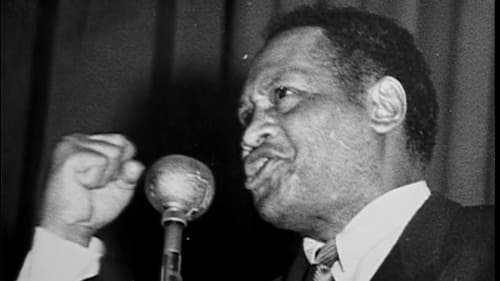
Self
Paul Robeson: Here I Stand presents the life and achievements of an extraordinary man. Athlete, singer, and scholar, Robeson was also a charismatic champion of the rights of the poor working man, the disfranchised and people of color. He led a life in the vanguard of many movements, achieved international acclaim for his music and suffered tremendous personal sacrifice. His story is one of the great dramas of the 20th century, spanning an international canvas of social upheaval and ideological controversy.

Self
Using government documents, archive footage and direct interviews with activists and former FBI/CIA officers, All Power to the People documents the history of race relations and the Civil Rights Movement in the United States during the 1960s and 70s. Covering the history of slavery, civil-rights activists, political assassinations and exploring the methods used to divide and destroy key figures of movements by government forces, the film then contrasts into Reagan-Era events, privacy threats from new technologies and the failure of the “War on Drugs”, forming a comprehensive view of the goals, aspirations and ultimate demise of the Civil Rights Movement…

Henry H. Garnet (voice)
Famous actors read testimonies from people close to Lincoln about him and his actions during the Civil War.

Music
Moments Without Proper Names makes Parks makes himself the subject, tracing his development as a person and an artist through an hourlong, non-narrative abstract self-portrait that combines Parks’s photographs with his musical compositions and scenes from his films. It also features footage of Parks, plus interpretations of his personal reminiscences performed by actors Avery Brooks, Roscoe Lee Browne, and Joe Seneca.

Moments Without Proper Names makes Parks makes himself the subject, tracing his development as a person and an artist through an hourlong, non-narrative abstract self-portrait that combines Parks’s photographs with his musical compositions and scenes from his films. It also features footage of Parks, plus interpretations of his personal reminiscences performed by actors Avery Brooks, Roscoe Lee Browne, and Joe Seneca.

Writer
Moments Without Proper Names makes Parks makes himself the subject, tracing his development as a person and an artist through an hourlong, non-narrative abstract self-portrait that combines Parks’s photographs with his musical compositions and scenes from his films. It also features footage of Parks, plus interpretations of his personal reminiscences performed by actors Avery Brooks, Roscoe Lee Browne, and Joe Seneca.

Director
Moments Without Proper Names makes Parks makes himself the subject, tracing his development as a person and an artist through an hourlong, non-narrative abstract self-portrait that combines Parks’s photographs with his musical compositions and scenes from his films. It also features footage of Parks, plus interpretations of his personal reminiscences performed by actors Avery Brooks, Roscoe Lee Browne, and Joe Seneca.

Director
This is based on a true story. Solomon Northrop is a black man in the mid 19th century before slavery was abolished. He's a born freeman who works as a carpenter and is also a part time musician. One day he is approached by some men who want him to play for them. However, that is not their intention; they have kidnapped him and sold him into slavery. Now he has to endure the hardships that he has been spared because of his status as a freeman. And his family who don't know what happened to him is searching for him but where do they go? And Solomon also wishes to let them know where he is so that they could get him but unfortunately no one believes his story or is willing to help him.
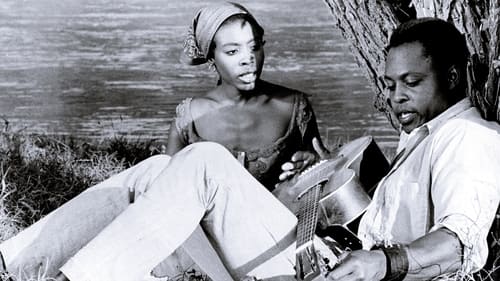
Director
The life of Blues and folk singer Huddie Leadbetter, nicknamed Leadbelly is recounted. Covering the good times and bad from his 20s to 40s. Much of that time was spent on chain gangs in the south. Even in prison he became well known for the songs he had composed and sung during and before the time he spent there.
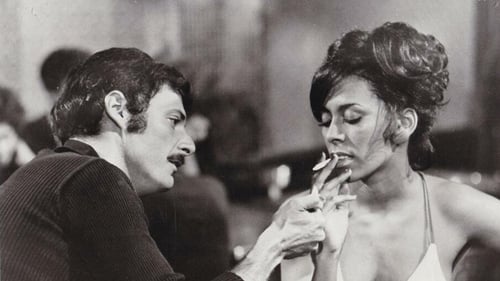
Director
The true story of two New York City cops. Greenberg & Hantz fought the system, became detectives and were known on the streets as "Batman & Robin".

Self
"Listen to a Stranger" spotlights esteemed writer, photographer, and filmmaker Gordon Parks, Sr., who discusses his life and career in the documentary. The film is an in-depth portrait of an iconic African-American artist and an early example of the work of Henry Hampton's groundbreaking production company, Blackside, Inc., which later created the seminal civil rights documentary series Eyes on the Prize.
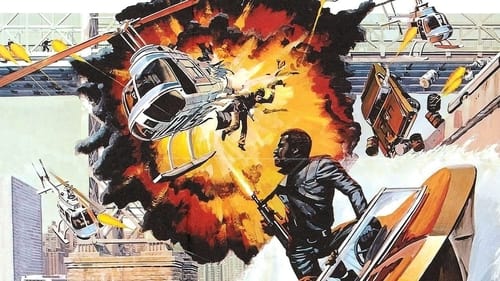
Original Music Composer
John Shaft is back as the lady-loved black detective cop on the search for the murderer of a client.

Director
John Shaft is back as the lady-loved black detective cop on the search for the murderer of a client.
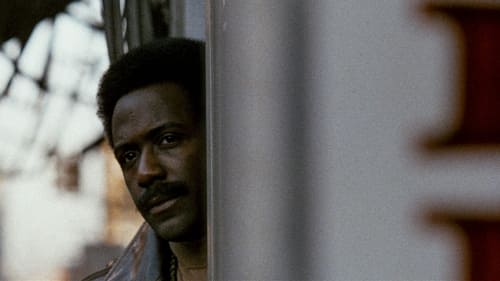
Director
ニューヨーク警官も一目置く、腕利き黒人私立探偵シャフト。ある日、彼は黒人街ハーレムのボス、バンピーから、愛娘マーシーの救出を依頼される。誘拐したのはシャフトの旧友ベンだという。ベンは黒人解放過激グループのボスになっていたのだ。現在のベンを知らないシャフトは、疑心暗鬼のまま操作を開始。ようやくベンの組織の集会所を探し出した時、突然の機関銃掃射を受ける!ベンとともに逃げ延びたシャフト…。彼の執拗な捜査によって、事件は意外な結末へと動き始める。

Self
A behind the scenes look at the filming of the movie Shaft (1971). The movie's director, Gordon Parks is seen directing a couple of fight scenes which he wants to get in as few takes as possible due to the set-up time and the danger involved in the stunt work. He is also seen speaking to the composer of the film score, 'Isaac Hayes', about the overlaying of the music over one of those fight scenes, and what he wants musically for another scene involving the lead character, John Shaft, moving through Times Square. The latter would eventually become the movie's iconic theme music. Being a frenetically paced action movie, he also works closely with the film's editor, Hugh A. Robertson.

Music
A documentary made on the set of "The Learning Tree." Narrated by Gordon Parks Jr., and featuring interviews with Gordon Parks Sr. and members of the cast and crew.

Himself
A documentary made on the set of "The Learning Tree." Narrated by Gordon Parks Jr., and featuring interviews with Gordon Parks Sr. and members of the cast and crew.
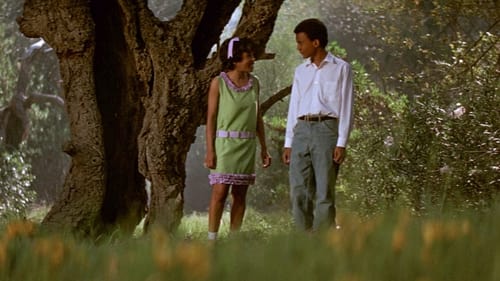
Original Music Composer
The story, set in Kansas during the 1920's, covers less than a year in the life of a black teenager, and documents the veritable deluge of events which force him into sudden manhood. The family relationships and enmities, the fears, frustrations and ambitions of the black teenager in small-town America are explored with a strong statement about human values.

Producer
The story, set in Kansas during the 1920's, covers less than a year in the life of a black teenager, and documents the veritable deluge of events which force him into sudden manhood. The family relationships and enmities, the fears, frustrations and ambitions of the black teenager in small-town America are explored with a strong statement about human values.

Screenplay
The story, set in Kansas during the 1920's, covers less than a year in the life of a black teenager, and documents the veritable deluge of events which force him into sudden manhood. The family relationships and enmities, the fears, frustrations and ambitions of the black teenager in small-town America are explored with a strong statement about human values.

Novel
The story, set in Kansas during the 1920's, covers less than a year in the life of a black teenager, and documents the veritable deluge of events which force him into sudden manhood. The family relationships and enmities, the fears, frustrations and ambitions of the black teenager in small-town America are explored with a strong statement about human values.

Director
The story, set in Kansas during the 1920's, covers less than a year in the life of a black teenager, and documents the veritable deluge of events which force him into sudden manhood. The family relationships and enmities, the fears, frustrations and ambitions of the black teenager in small-town America are explored with a strong statement about human values.

Self
A featurette that shows director Gordon Parks on location for the film The Learning Tree.

Sequence Lead
Piri Thomas, a painter, poet, author, ex-con, and ex-junkie, describes the life of a Puerto Rican in the Spanish Harlem ghetto in New York City

Narration
Presents Gordon Parks' photo-essay "A Harlem Family", framed by a filmed segment featuring Parks and the Fontanelle family and narrated by Parks.

Cinematography
Presents Gordon Parks' photo-essay "A Harlem Family", framed by a filmed segment featuring Parks and the Fontanelle family and narrated by Parks.

Director
Piri Thomas, a painter, poet, author, ex-con, and ex-junkie, describes the life of a Puerto Rican in the Spanish Harlem ghetto in New York City

Writer
Documentary about a boy living with his family in extreme poverty in Rio de Janeiro.

Director
Documentary about a boy living with his family in extreme poverty in Rio de Janeiro.










